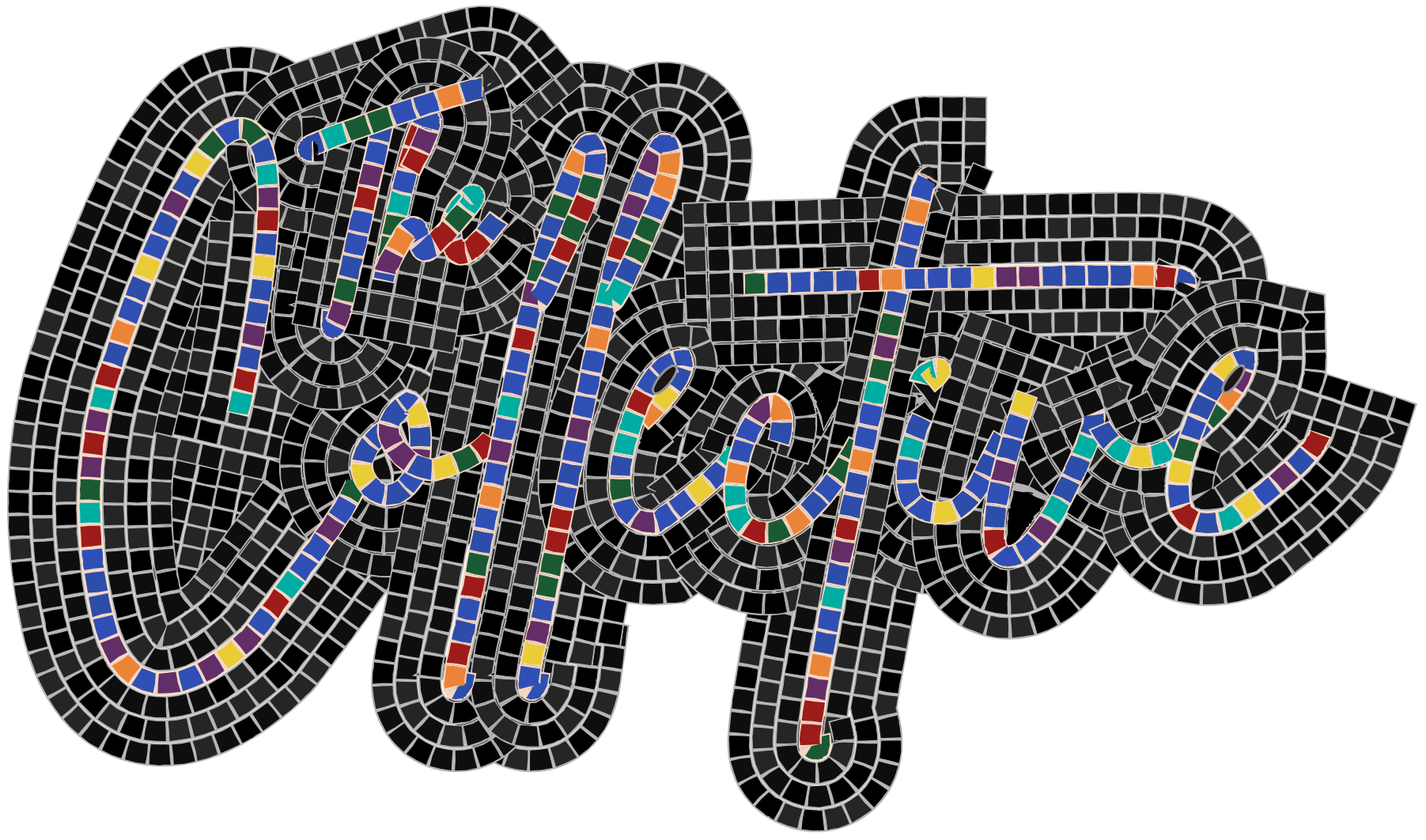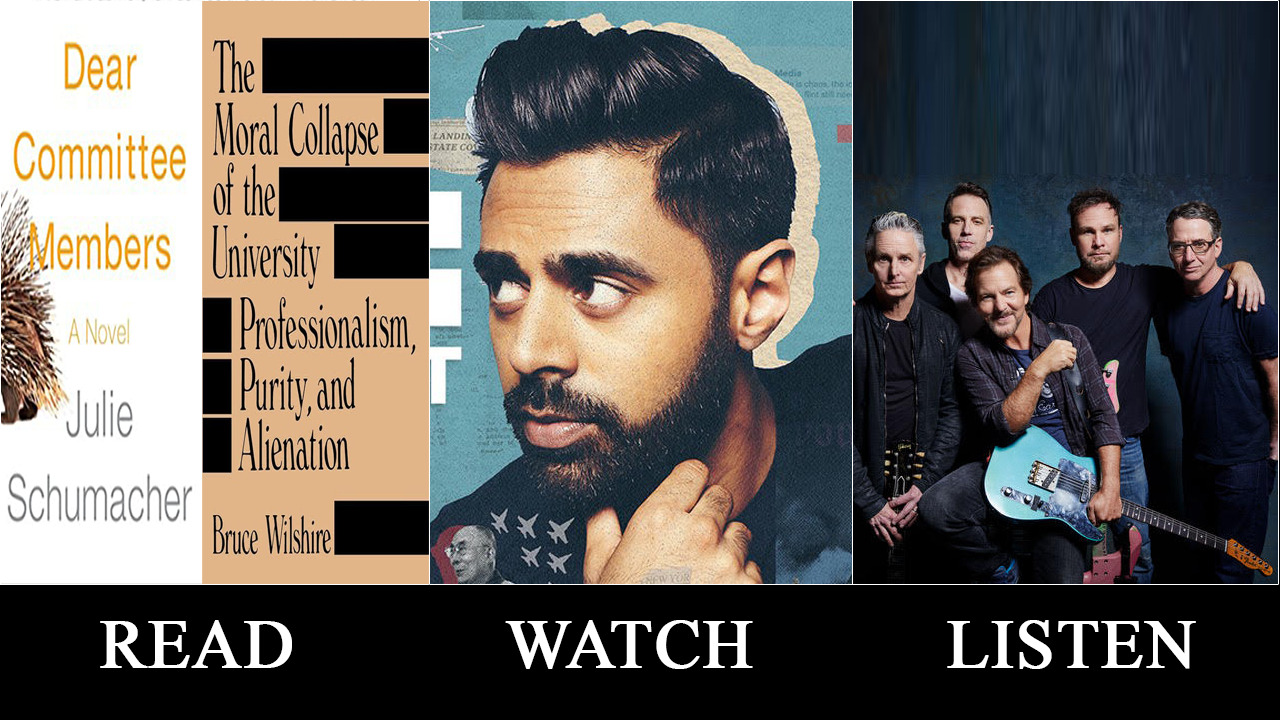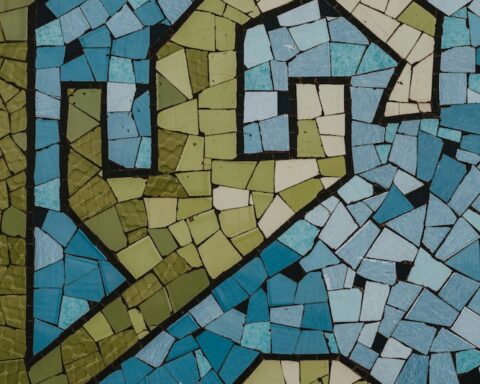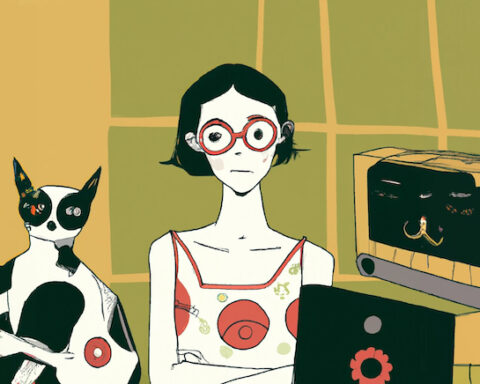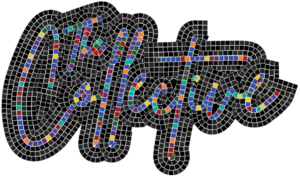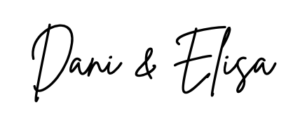In this, our sixth Editors’ Corner, we recommend artistic works to complement this issue’s theme: the many voices of academia. Many of us at The Collective are connected to the academic system — products of it, contributors to it, employees of it, invested in some way in its legacy, its functioning, its general being; so, by extension, we were eager to think critically and critique-ly about the wrongs and rights of the system through a mosaic of ideas and constructive perspectives. Through overlapping and competing responses to academia’s specific horrifics, the voices in this issue and the recommendations in this Corner begin to shape a holistic view of the system and offer a multiplicity of ways in which we can “find ourselves” both in and out of the beautiful, intricate mess that is higher education.
READ
Julie Schumacher — Dear Committee Members (2015)
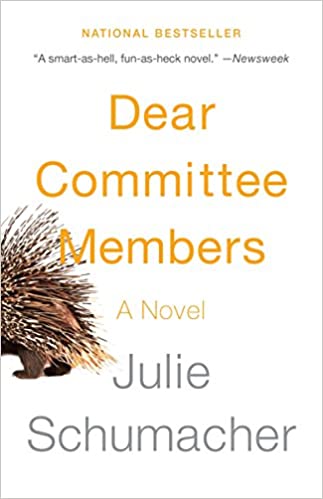
Written by University of Minnesota Creative Writing and English professor Julie Schumacher, Dear Committee Members centers on Jason (Jay) Fitger, a biting and passive-aggressive creative writing and literature professor at Payne University, an insignificant Midwest liberal arts college. He is trying to better his life on multiple fronts: lift his career from the dumps (his agent won’t call him back and his last book was not reviewed well); have some kind of practical effect in his department, which is in a nightmare state of disrepair (and practically being physically taken over by the illustrious economics department); and reconnect with his ex-wife Janet Matthias, who is faculty in the law department. All the while, he is striving to help deserving students further their aspirations and careers, though the hazardous workplace conditions, overwhelming university bureaucracy, and insufficient pay make for a barely functioning foundation to achieve that task.
The novel is epistolary; each letter Fitger pens is a recommendation of some kind, for students, colleagues, or to his chair, and it is amazing how Schumacher delivers an incredibly sharp and insightful satire in the form of only letters written by a single character. It’s also no surprise the novel won the 2015 Thurber Prize for American Humor (making Schumacher the first woman to receive the accolade), as it is laugh-out-loud funny and spot-on with portraying university archetypes, problems, and ills. Just for a taste of the snarky, snort-inducing fare, Fitger pens to a colleague who just won a prestigious position at a literary residency program: “Dear Eleanor, Congratulations on the dictatorship (haha!) directorship! Well done! Who would have guessed, twenty-some years ago when we were living on pizza crust and challenging the poets to recitation games in the student lounge, that you’d be in charge of Bentham and I’d be sending you my best and my brightest?” (p. 16)
As the novel progresses, we do eventually get to see past Fitger’s ass-hat tendencies and bitter layers to a softer interior. The ending is surprisingly poignant and touching and, without ruining it (look out for my favorite passage on page 179), we are reminded why people fall in love with academia in the first place and are also persuaded that idealism still matters.
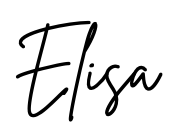
Bruce Wilshire — The Moral Collapse of the University: Professionalism, Purity, and Alienation (1990)
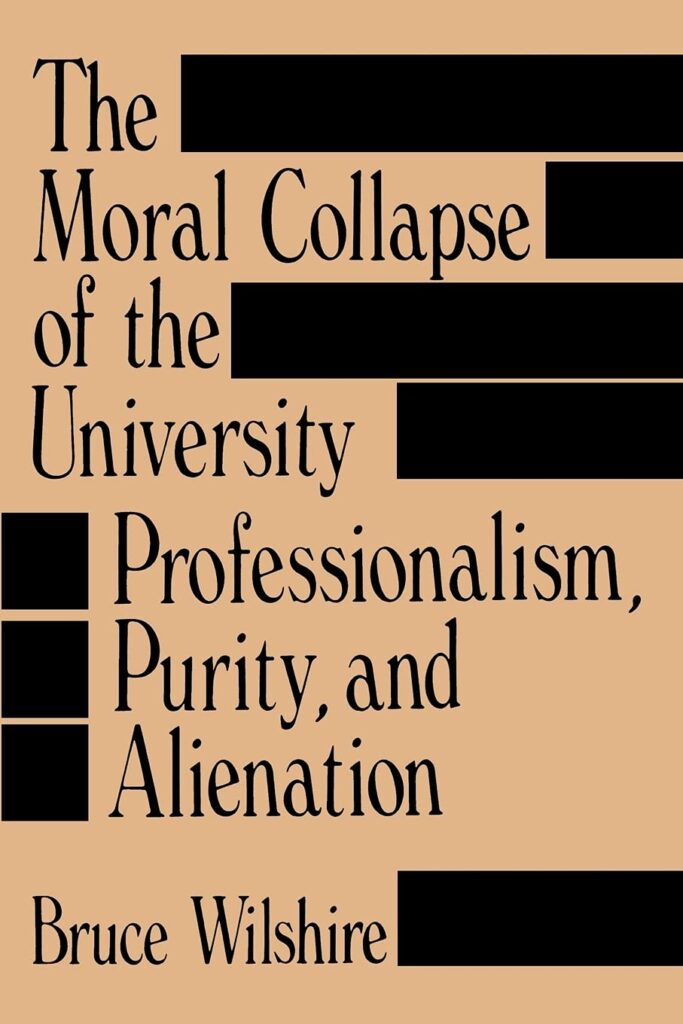
In spite of its 90s white male Eurocentrism vibe and quasi-new-age moral impossibilities couched in winding philosophical logos, Bruce Wilshire’s critiques of academia and professionalism in his 1990 tome The Moral Collapse of the University are absolutely, brilliantly, and (still) sadly, spot-on. I found the book earlier this summer on an Alexander Technique reading list; it felt both fateful and strange to stumble on something not only critical and academic written with an A.T. lens but so perfectly matched to this issue’s emergent theme. While the book is undeniably, and sometimes uncomfortably, a product of its time (the final chapter’s pointedly empathetic “what ifs” re: gender and Women’s Studies are well-intended but still cringe) and of a certain philosophical lineage (how many times do you read “Nietzsche is right about…” without rolling your eyes?), it remains a compelling if not urgent read.
Understanding the academy’s structural and philosophical rootedness in seventeenth-century thought, Wilshire sketches its complicity in perpetuating the cleaving of human into disparate mind and body (hence the chapter “Pollution Phenomena,” emphasizing the role of F.M. Alexander’s work in that of educational reformist John Dewey) and links the “rise of the modern professionalized institution” with increasing specialization, crushing positivist thinking, and ubiquitous bureaucratic engorgement, common refrains in academic complaints still today. Wilshire argues for the near hypocrisy that those in the academy — knowers — do not know what’s going on in the very system through which knowing is supposed to happen.
The conceptual structures of various academic departments, the webbings and rootages of meaning and sense, must tend to grow together to create a view of the world. To oppose it is to oppose the life of the mind. As we have seen, however, seldom is this rudimentary self-reflexivity achieved in university discussion. Because attention is confined to sharply circumscribed ideational zones, the necessary level of human concern and conceptual generality is not reached.
For me, one of the most powerful things in this book, but also what forms one of Wilshire’s most perplexing philosophical excursions, is his commitment to the importance teaching as such — “the educational act” — and his emergent perspective on the teacher-student relationship, a duality he embraces as a real-time engagement in self-discovery, social relations, and a way of gaining “historical depth” in an “ahistorical society.” The impossible challenge of individual ethical responsibility in an increasingly “professional” environment, is a critical refrain; Wilshire understands teaching’s tricky situation within the matrix of (non)academic activities required of professors, arguing that teaching “cannot be a fundamental value in the university as it is presently constituted.” The crux of his argument throughout — professionalization of the academy as the downfall of higher learning and human goodness — is, put simply, fundamentally at odds with the purpose of education.
…all the essential features of the educating act are threatened by professionalism unaware of its limitations. Engagement in the classroom or laboratory can be achieved, but for what motives and with what consequences? Wealth and power need not entail well grounded identity. We may elicit recognition and a measure of authorization from the world itself—a highway cut through the mountains, a building etched against the horizon—but nothing like a balanced view of the world and our place within it need result. Truths about this and that pile up, and no doubt this is achievement, but it is no more than mountains of chips if we don’t learn something about human life as an integral whole, something about human goodness.”
Wilshire is essentially asking his own large-scale version of the questions “What are we doing?” and “Why are we doing it”?, continuing:
The danger is to be closeted in contemporaneity, and to grow quietly wild there: to achieve scientific and technological progress and personal tragedy. Can we imagine a more unsatisfying answer to the chief educational question, What shall I be, what shall I make of myself?
In navigating the sweeping (and sometimes weirdly treacherous) terrain of Wilshire’s writing, and in wanting to extend his ideas to current situations, I often wondered, what might this look like if written today? For example, what might our “chief educational question” be, and how does it relate to the problems of the academy in 2022? Of course, the “chief-educational-question”-according-to Wilshire is a product of its context (and, arguably lends itself easily to pollution-by-professionalization, but that’s something for another day), as are Wilshire’s notions of morality more broadly, but I believe it is productive to wonder: If we are still facing the spinning out of academic professionalization, if we are continually suffering both collectively and individually from ever increasing alienation in our “body-selves,” as Wilshire calls it, what should be our response?
As an “A.T. person,” I am gratified and galvanized by the fact that Wilshire sees the efficacy of systems like the Technique as I do — capable of accomplishing massive social (read: species) change by getting us out of unproductive mental turmoil and more in touch which what we really want in life, caring for “the life of the mind” as necessarily tethered to the life of the body. As an academic, I wonder how far we have to push “the life of the mind” down a path fundamentally opposed to “life” itself before we really do something about it.

WATCH
Hassan Minhaj — “Is College Still Worth it?” Patriot Act (2020)

If you don’t know about it, Patriot Act (2018-2020) was a news/comedy Netflix original hosted and executive produced by “The Daily Show” correspondent Hasan Minhaj (who consequently became the first Indian-American to host a weekly comedy). In forty episodes, Minhaj delivers well-researched information with sincerity, charm, irreverence, and wit, on a variety of contemporary cultural and political subjects that “investigate the larger trends shaping the fragmented world.” Topics range from “Censorship in China” to “Mental Health” to “The Real Cost of Cruises” (each episode as riveting as the next). Most episodes were filmed in front of a live audience and are accompanied by slick and engrossing multi-media; the nerdy side of me was delighted and impressed by the best powerpoint presentations I’ve ever seen.
In this episode aired June 14, 2020 from Volume 6, Minhaj explores a well-debated issue: “Is College Still Worth it?” In a jam-packed 21 minutes, he addresses the fallout in universities from Covid, the cost of college and student debt, the necessity of earning a college degree to be able to succeed in today’s job market, and the deplorable treatment of adjuncts and graduate teaching assistants — all leading to the big question of why universities don’t have more money to support their students and faculty when their endowments are so large. With hard numbers, compelling narrative, and perceptive asides (if you’re like me, you’ll be cringing in horror and laughing out loud in equal measure), Minhaj exposes the long-in-development corporate nature of universities today. Though you may already be aware of this depressing reality, this episode is well worth your time — if not to build up your armory of incisive facts and persuasive figures, then to at least have a dark laugh alongside another compassionate intellect.

LISTEN
Pearl Jam — “Education,” from Lost Dogs (2003)

This time, we leave you with a lighter listening load — a lesser-known gem from the much better-known PNW alt-(post)punk-rock Seattle grunge group, Pearl Jam. “Education,” originally slated for Pearl Jam’s 2000 album Binaural, appeared instead three years later on an aptly named two-disc B-sides track compilation, Lost Dogs, which exists seemingly as a result of the band’s discomfort with success — in the late 90s and early 2000s, lead singer Eddie Vedder, attempting to curb the band’s increasing fame as he refused to be “quickly co-opted by the masses,” withdrew numerous songs from release on various albums, leaving a chunk of Pearl Jam’s output in the wings.
I'm questioning my education Is my education who I am now? While you're deciding, I've been finding Looking around in the here and now If I've been taught from the beginning Would my fears now be winning? I'm questioning my own equation Is my own equation relevant somehow? The flags are waving, the news is breaking See the man who can't pick out his own tie If I've been taught from the beginning Would my fears now be winning? A wild world, figuring out the answers I'll be in my own dance and iiii... I'm questioning my education Rewind and what does it show? Could be, the truth it becomes you I'm a seed, wondering why it grows...
In an accessible yet thought-provoking way, the song speaks to how education should (and shouldn’t) be valued, and about its role in personal development and social/political identity and understanding. What I appreciate about the lyrics is the reprise of questions-as-such, the subliminal suggestion that questioning — looking back — is itself the way to move forward and grow, and that not doing so could be dangerous.
I wish this track wasn’t a lost dog, but Eddie wouldn’t be Eddie if he hadn’t resisted fame, and deep tracks are deep for a reason. If nothing else, it’s a punk-rock reminder to sniff out the B-sides and a poetic prompt to question what we know and how we know it.

Especially with an issue like this one, we expect that different articles will vibe with different people. We also expect that for every new perspective or complex relationship with academia offered in these articles, our readership brings infinitely more. So, whether you are “in” academia or not — it may be far from your line of work, it may be your daily reality, you may have left it behind long ago, it may be something you simply can’t stand or a way of life to which you are unfailingly dedicated — we hope that you will find yourselves within, between, and beyond the pieces in this issue.
Ultimately, we hope that you take this issue’s theme to heart as an extension of The Collective’s fundamental value — challenge the status quo and don’t accept situations or systems simply because you’re told to.
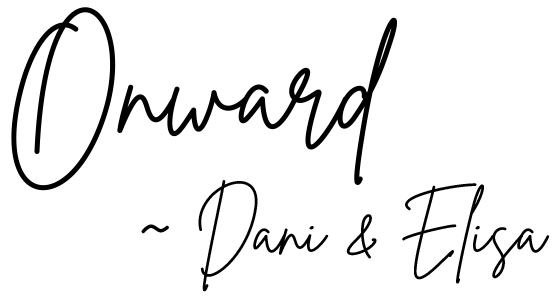
Articles in this issue:
- Featured Article: Ethics Vulgar academia: Why knowledge production needs a class war by Andrew Bethke
- Learning How academia failed my father by Vijay M. Rajan
- Materials That’s “Dr. Swift” to you. A couple thoughts on degrees and monsters by Ian Nutting
- Movement The undercommon life: Why I’m staying in academia by Noël Wan
- Performing Pedagogical pivots: Engaging music and activism in my department of music by Elizabeth McLean Macy
- Politics “You Ain’t No King”: Black masculinity and political satire in Kendrick Lamar’s “To Pimp a Butterfly” by Tori Tyler
- Nugget August 2022: Learning Reflections by Contributing Writers
